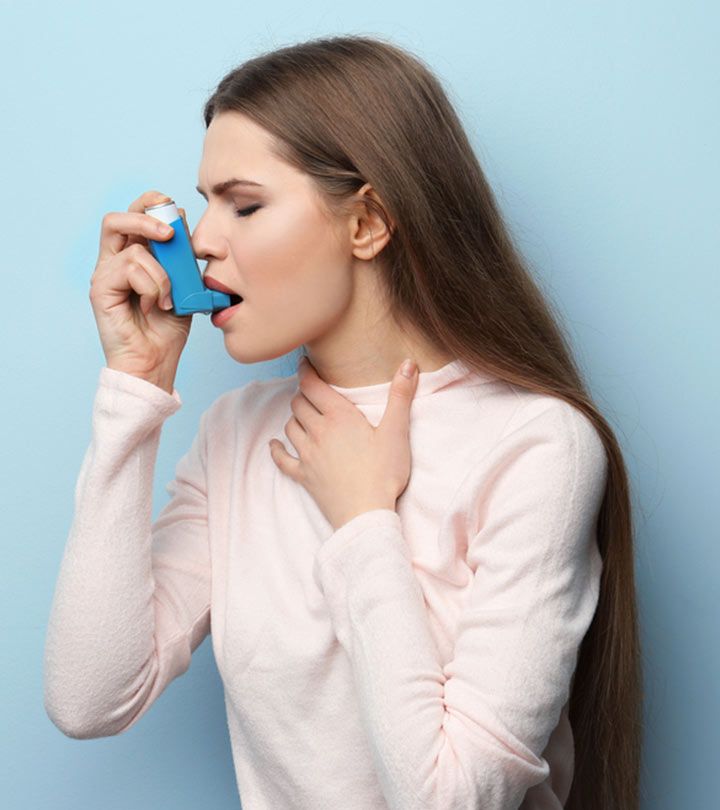Asthma
Home
Asthma
Ayurvedic Treatment for Asthma: Causes, Remedies & Lifestyle
Asthma is a chronic respiratory disorder characterized by difficulty in breathing, wheezing, chest tightness, and coughing. It occurs due to inflammation and narrowing of the airways, often triggered by allergens, pollutants, cold air, or stress. In modern medicine, asthma is often managed with inhalers and medications that suppress symptoms, but Ayurveda offers a holistic and natural approach, focusing on balancing the doshas, strengthening lungs, and improving immunity.
In Ayurveda, asthma is commonly referred to as Shwasa Roga and is classified based on dosha imbalance: Vataja, Pittaja, Kaphaja, and Sannipataja Shwasa. It is primarily linked to Vata-Kapha imbalance, causing respiratory obstruction, mucus accumulation, and difficulty in airflow.

Causes of Asthma
Ayurveda identifies multiple factors that contribute to asthma:
- Dosha Imbalance – Predominantly Vata-Kapha aggravation affecting lungs and respiratory channels.
- Genetic Predisposition – Family history of asthma or respiratory disorders.
- Environmental Factors – Dust, pollen, mold, smoke, pollution, and chemical irritants.
- Dietary Causes – Excess Kapha-aggravating foods like dairy, fried, and cold foods.
- Weak Digestion (Mandagni) – Produces Ama that blocks channels and lowers immunity.
- Seasonal Changes (Ritu-Parivartan) – Cold winters or sudden weather changes trigger symptoms.
- Stress and Lifestyle – Irregular sleep, sedentary habits, or suppression of natural urges like coughing.
Symptoms of Asthma
- Difficulty in breathing and shortness of breath
- Wheezing or whistling sound during breathing
- Chest tightness and heaviness
- Dry or productive cough
- Fatigue and reduced physical stamina
- Anxiety or panic during acute attacks
- Recurrent respiratory infections
If untreated, asthma may lead to chronic lung inflammation, bronchitis, or reduced oxygen supply affecting daily life.
Ayurvedic Line of Treatment (Chikitsa Siddhanta)
Ayurveda emphasizes three approaches for treating asthma:
- Shodhana (Detoxification) – Removing toxins and Kapha accumulation through Panchakarma therapies.
- Shamana (Pacification) – Using herbal medicines, diet, and lifestyle practices to balance Vata-Kapha and reduce symptoms.
- Rasayana (Rejuvenation) – Strengthening lungs, improving immunity, and preventing recurrence of attacks.
Diet Recommendations (Ahara)
Diet plays a crucial role in both prevention and treatment of asthma.
Foods to Avoid
- Cold foods and drinks, ice creams
- Excess dairy like cheese, butter, and milk
- Fried and oily foods
- Fermented foods, vinegar, and pickles
- Heavy grains in excess (wheat, rice)
- Processed and junk foods
- Foods that trigger allergies (like nuts, seafood, or specific fruits)
Foods to Include
- Warm, light meals – Easily digestible to avoid Ama accumulation
- Spices – Ginger, turmeric, black pepper, cumin, and coriander improve digestion and reduce Kapha
- Herbal teas – Tulsi, cinnamon, cardamom, and ginger decoctions for immunity and lung health
- Fruits – Amla, pomegranate, papaya, and kiwi rich in Vitamin C and antioxidants
- Vegetables – Bitter gourd, drumstick leaves, spinach, bottle gourd to reduce mucus
- Legumes – Moong dal and lentils for protein and easy digestion
- Grains – Barley, millet, and old rice for lightness and nourishment
Lifestyle Practices (Vihara)
- Pranayama – Daily practice of Anulom Vilom, Bhastrika, and Kapalbhati to strengthen lungs and improve oxygenation.
- Yoga Asanas – Bhujangasana (Cobra), Matsyasana (Fish), Dhanurasana (Bow), Setubandhasana (Bridge) support lung expansion.
- Steam Inhalation – Use of eucalyptus or herbal steam for decongestion.
- Avoid Environmental Triggers – Keep home dust-free, avoid smoking, perfumes, and cold winds.
- Regular Sleep – Maintain proper sleep schedule to reduce Vata aggravation.
- Stress Management – Meditation and mindfulness to reduce attack triggers.
Ayurvedic Therapies (Panchakarma & Kriya)
For chronic or severe asthma, Ayurveda recommends:
- Nasya Karma – Medicated oils (Anu Taila or Shadbindu Taila) in nostrils to clear airways and strengthen respiratory tissue.
- Vamana Karma (Therapeutic Emesis) – Removes excess Kapha and mucus accumulation.
- Abhyanga & Swedana – Oil massage followed by steam therapy to detoxify and improve circulation.
- Rasayana Therapy – Rejuvenating herbs to strengthen lungs and immunity.
How People Suffer from Asthma
Asthma can significantly affect physical, emotional, and social life:
- Difficulty performing daily tasks due to breathlessness
- Anxiety and panic during acute attacks
- Sleep disturbances from nighttime coughing and wheezing
- Reduced stamina and fatigue
- Increased susceptibility to infections
- Frequent hospital visits and dependence on medications
Preventive Measures
- Maintain a Kapha-Vata balanced diet
- Avoid exposure to allergens and pollutants
- Practice daily yoga, pranayama, and meditation
- Keep home and surroundings dust-free and ventilated
- Avoid smoking, alcohol, and cold foods
- Periodic detoxification with Panchakarma therapies
Conclusion
Asthma is a chronic respiratory condition caused by Vata-Kapha imbalance, mucus accumulation, and weak lung immunity. Ayurvedic treatment for asthma addresses the root causes through diet, lifestyle modifications, herbal remedies, and Panchakarma therapies, providing natural, long-term relief.
By nourishing the lungs, strengthening Rakta and Prana Dhatu, detoxifying the body, and practicing breathing exercises, one can manage asthma effectively, reduce dependency on medications, and improve overall respiratory health.
